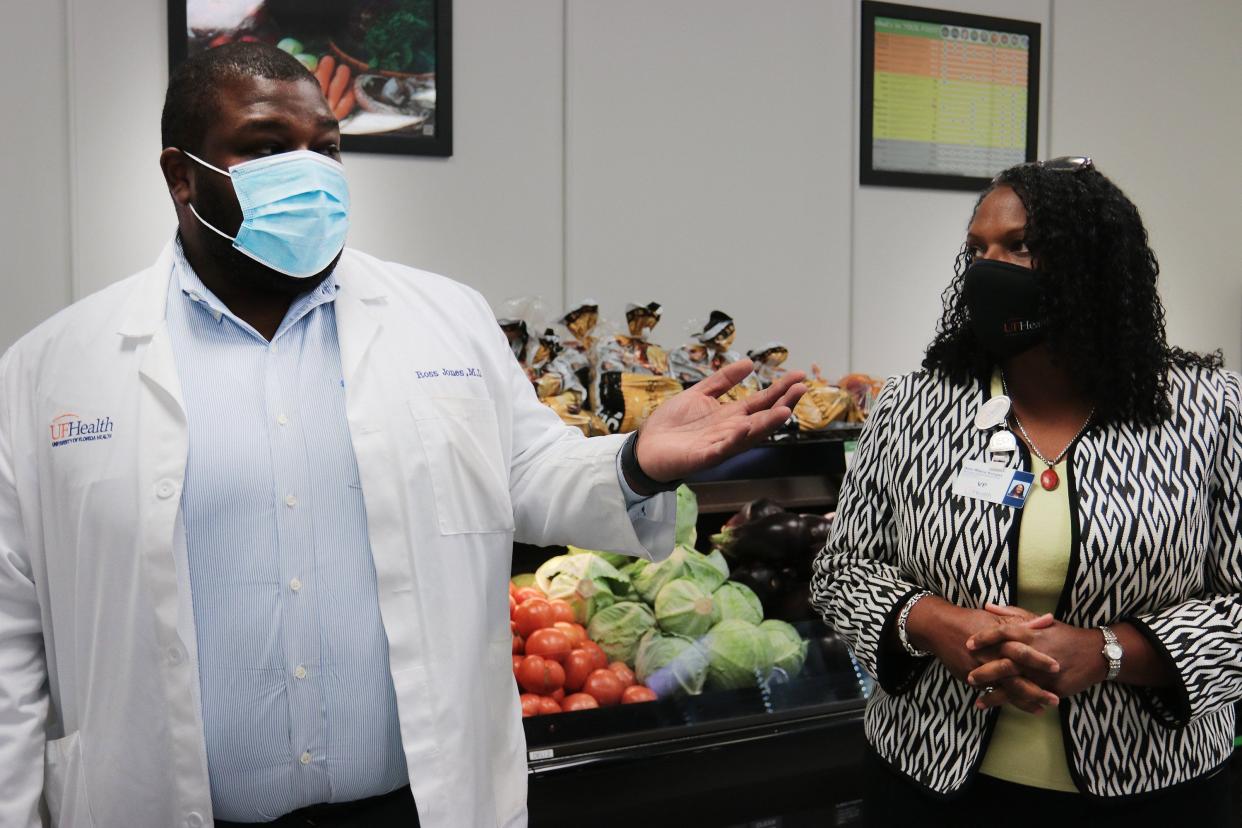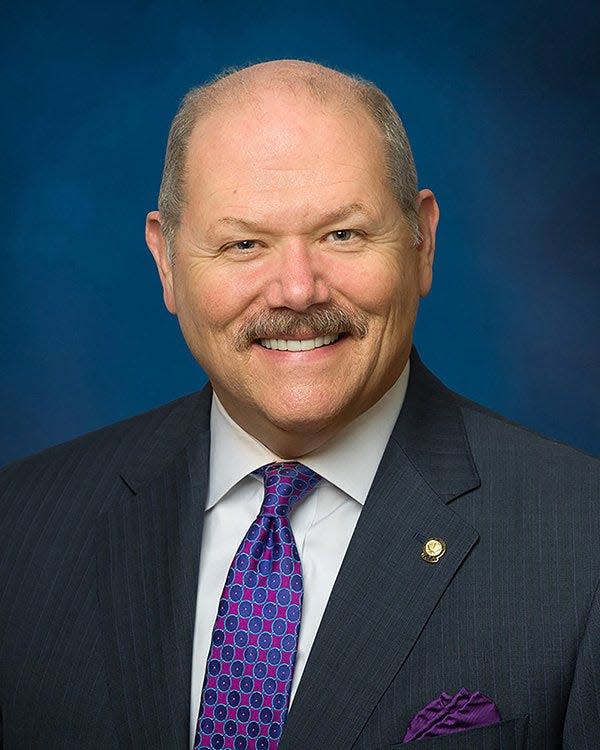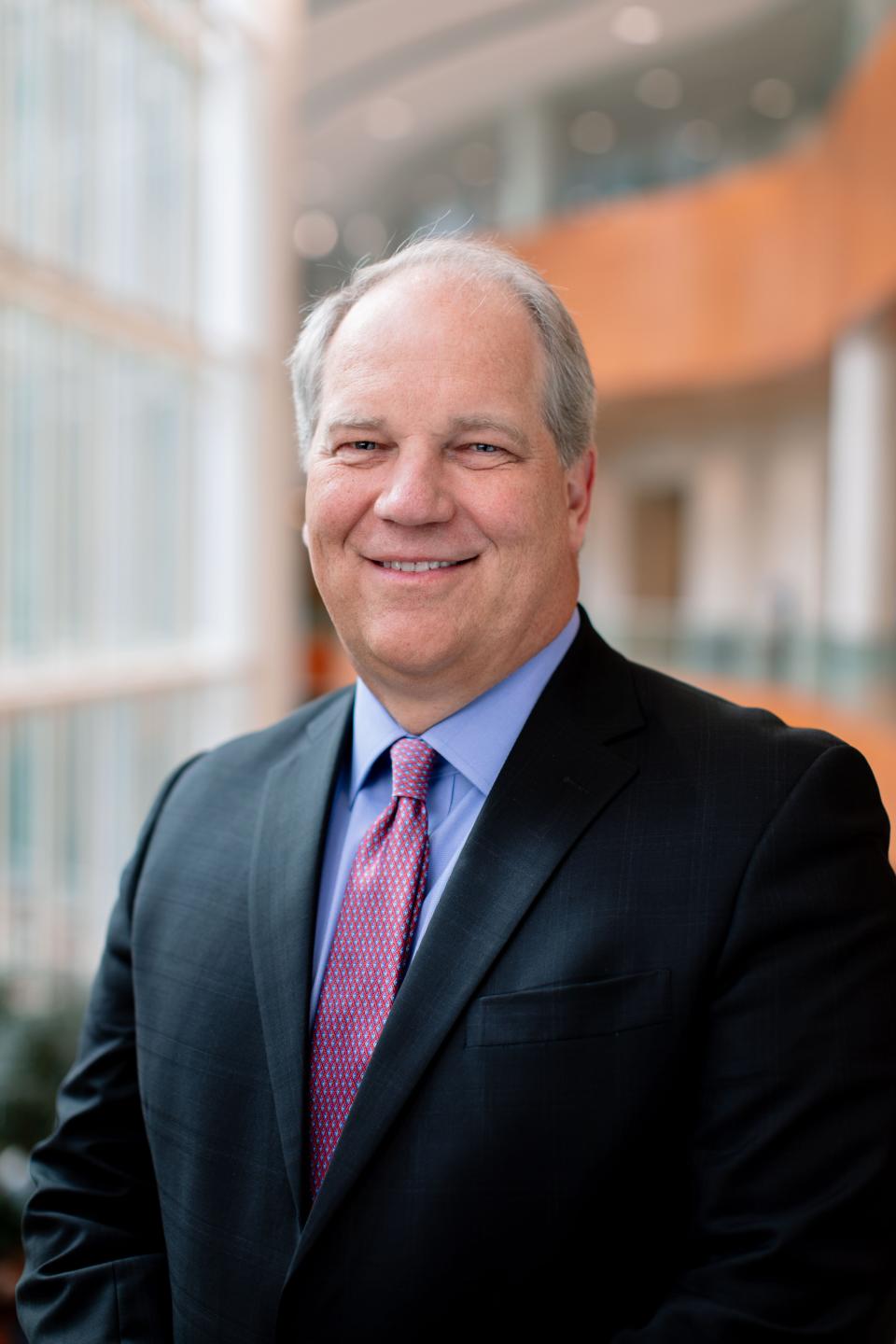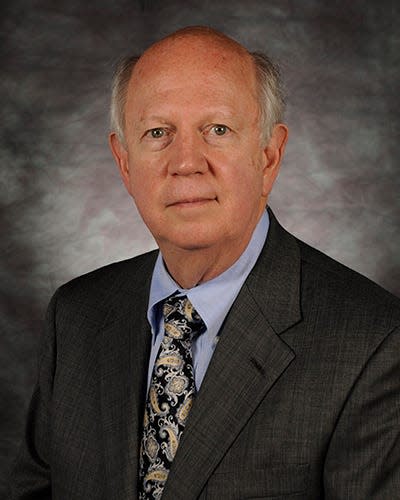Community health assessment reveals nagging issues, inequities, opportunities for action in Jacksonville area

Every three years Jacksonville-area hospitals ask residents in five Northeast Florida counties what collectively ails them and if they encounter roadblocks getting care.
The latest Community Health Needs Assessment, an exhaustive, 109-page document released Thursday, revealed the same top nagging issues outlined in previous studies — mental health, chronic disease and lack of access to care. Each was exacerbated by the ongoing COVID-19 pandemic and longtime health care inequities, according to the report.
Among other things, the 2022 report also noted the critical "need for culturally competent and sensitive care" for patients of color and LGBTQ+ status, as well as worrying life expectancy rates that were lower than the state average in every Northeast Florida county but St. Johns.
Concerted effort' needed: Jacksonville's deep-rooted health disparities can impact lifetimes
Urban Health Alliance Food access and mental health are a struggle for many in Jacksonville

"It's kind of like a checkup. … Like going to the doctor," said Michael Mayo, president and CEO of Baptist Health. "Finding out what's going right, what's not going right."
The federally required assessment was commissioned by the Jacksonville Nonprofit Hospital Partnership, which includes five health systems and 13 hospital campuses serving Northeast Florida.
The ZIP code-based study helps pinpoint "hot spots" for the partnership and the community to target its efforts, such as lack of access to care, housing and nutritious food, Mayo said. The partnership already has two collaborative action plans lined up, including an electronic patient referral system.
The second is implementing Blue Zones, a national program that helps change people's health behaviors by transforming their neighborhoods, such as adding sidewalks to encourage walking and community gardens to improve nutrition in food deserts.
How the study was conducted
The latest assessment is the fourth conducted since the partnership was formed in 2011. Conducted by the Health Planning Council of Northeast Florida, the study collected data from focus groups, interviews with key stakeholders and surveys across five Northeast Florida counties. The data is compared to national benchmarks to determine the state of the region’s health.
"We are called to provide clinically excellent, compassionate, personalized care to everyone, and the information gathered in the Community Health Needs Assessment helps us better understand the evolving needs of those we are so privileged to serve," said Tom VanOsdol, president and CEO of Ascension Florida and Gulf Coast. “This assessment allows us to comprehensively review the relevant data and hear directly from members of our community about what they need most."
Study: Housing disparities persist in Jacksonville for Blacks, as well as LGBTQ and young adult communities
About 1,300 residents participated. In addition to the top three concerns, the study cited cancer, drug abuse, maternal and child health, as well as the health impacts of housing, poverty and lack of transportation.

In a joint statement, partnership leaders Mayo, VanOsdol and fellow hospital CEOs Doug Baer of Brooks Rehabilitation, Kent Thielen of Mayo Clinic Florida and Russ Armistead of UF Health Jacksonville said they were "committed to solving issues plaguing the most vulnerable amongst us."
"The report was conducted during unprecedented times when our community and country were greatly affected by the COVID-19 pandemic and as our country experienced multiple incidents of racial injustice," according to the statement. "Systemic racism, incidents of discrimination and cultural incompetence are drivers of racial health inequities. As a result, each of our health systems is actively engaged in diversity, equity, and inclusion efforts to identify and work to address racial health inequities."
Identifying gaps in health care
The partnership has already sponsored programs such as Mental Health First Aid, which teaches people how to identify, understand and respond to signs of mental illness and substance use disorders; and Project Save Lives, which provides aftercare services to men living with a substance use disorder.
The assessment "has been an extremely worthwhile endeavor in helping us identify specific gaps in health care," Baer said. "We are pleased to now have this information that Brooks will use as we move forward to develop solutions."
That the top three issues in the 2022 study are familiar does not indicate lack of improvement, Armistead said.
"This trend exists despite a wealth of best-practice initiatives that are in place across our city," he said. "Those initiatives … work toward common goals of improving health disparities, but the challenge continues. Despite being slow, we suspect we are mitigating trends that could be much worse if we weren’t focused on them."

The key to ongoing improvement, Armistead said, will be addressing socioeconomic status, education and access to transportation, affordable housing and healthy foods. As much as 50 percent of an individual’s health is determined by such social factors.
Those factors can lead to racial and ethnic disparities in health care, Thielen said.
"They have higher risk because they lack resources," he said. "The pandemic heightened our awareness of the needs."
Marcia Pledger: The mental health crisis among Duval County's youth needs community support
Guest column: Florida's mental health system putting families like ours at risk
Broad, communitywide efforts are needed to tackle all the issues and their multiple causes.
"These are some of the biggest challenges facing the community," Thielen said. "Multiple approaches are needed to address them … Groups coming together."
Blue Zones will do just that by "getting into the heart" of neighborhoods, Mayo said. A Blue Zones feasibility study has already been done in Jacksonville and the program will launch June 2.
The program is based on transplanting the healthy habits of seven places across the world "where people are living long, vibrant healthy lives," he said. Mayo is hoping for widespread community support, including City Hall and other governments that can make policy to get the ball rolling.
"Policies plow through a lot of other things that allow these things to happen," such as new sidewalks prompting more movement, he said. "A lot of agencies are doing a lot of very good work [to improve community health]. But is it not connected in one effort."
bcravey@jacksonville.com, (904) 359-4109
JACKSONVILLE NONPROFIT HOSPITAL PARTNERSHIP
To read the report, go to hpcnef.org/jacksonville-nonprofit-hospital-partnership-community-health-needs-assessment. For more information on Blue Zones in Jacksonville, go to bluezones.com/activate-jacksonville.
This article originally appeared on Florida Times-Union: Jacksonville-area hospitals release report on community health issues

